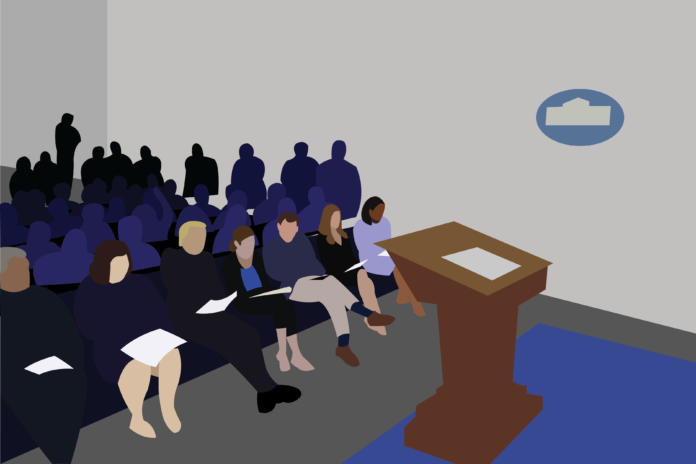Turning COVID-19 briefings into tools of political campaigning are not beneficial to nation or president
The 2020 presidential election is like none before it.
The fallout from the COVID-19 pandemic has left the two remaining major candidates scrambling for ways to appeal to the public. Both campaigns have moved online. Both use media surrogates. But one truly misses the prospects of in-person rallies.
President Donald Trump’s inability to host his infamous public rallies has led to a level of worsened frustration by increasingly troubling polling numbers. Absent the ability to reach a widespread audience in his traditional format, he has moved to a familiar medium: television.
Per his own words, President Trump enjoys the highly publicized nature of nationally televised press conferences. In an interview with The New York Post, he reignited a familiar talking point when he touted the strong television ratings his briefings generated. Seemingly aware of the potentially off-putting nature of these press conferences with older voters, Trump merely doubled down on his showman status. He emphasized that his combative demeanor was superior because it had the potential to be more entertaining than simply answering questions.
If nothing else, Trump is a master brander. Former President Bill Clinton admitted as much himself as early as 2015. Irrespective of your opinion of Trump, he possesses a degree of media savviness that many politicians lack. If you try to conjure up an image of Trump before his ascent to the presidency — as difficult as that now may be — you will probably recall him as the businessman face of “The Apprentice” or as a pop-culture figure synonymous with wealth and luxury. He had cameo appearances in everything from Home Alone 2 to The Fresh Prince of Bel Air. And years before YG’s “FDT,” he was iconized in rap songs.
This obsession with ratings and infatuation with media recognition has never left the president’s psyche. Trump’s compulsive attention to TV ratings is well documented and doesn’t appear to be waning anytime soon, even as his own campaign team pleads with him to do otherwise. And as The New York Times discussed just before the 2016 election, the president seems most deeply fearful of one single thing: being forgotten.
Aside from rudimentary psychoanalysis, there are other motivating factors that explain his desire for press coverage. The briefings give the president the ability to address his supporters and detractors alike with his signature flair. Absent rallies and with an American population increasingly confined to their homes, it provides an opportune chance to broadcast himself to a nationwide audience.
While admittedly some questions from reporters go unanswered during a time of crisis, these briefings give Trump the chance to rail against the establishment media. This tactic has become a trademark component of his reelection campaign with the potential to energize disaffected populists from the left and right.
It is abundantly obvious that the president misses his rallies. And can you really blame him? From the perspective of his reelection campaign, the mass gatherings were a show of force. They were a morale-boosting demonstration that allowed a voting bloc that constantly sees itself as under attack — from the hostile media, from a rapidly changing world — to energize itself in a way few political campaigns can. They also served as a valuable source for the campaign’s data harvesting efforts. Indeed, these rallies were so crucial to Trump’s movement that they began almost immediately after his election and have continued well into his presidency. Now they have evaporated almost instantly.
In its place are press conferences and coronavirus briefings, both of which may not be intended for use as reelection platforms but have become so. Unfortunately for the Trump campaign, this mechanism may not be working in their favor. According to CNN, while President Trump’s approval rating remains near all-time highs, some six out of ten Americans still do not trust what he says regarding the pandemic. This is despite overwhelmingly trustworthy views of the medical experts that often appear alongside him, with one Quinnipiac poll showing 78% approval for Dr. Anthony Fauci.
Virtually each and every American is suffering in some way due to this crisis. It has reshaped daily life for the vast majority of us, frustrating individuals from every walk of life. We all have to cope by finding new ways to work and communicate. This struggle even extends to the president. But it’s time to realize that press briefings are best for a quality distribution of information about the pandemic, not for a theater of reelection campaign antics. The president and his advisors should realize this, if not for the good of America, then for the prospects of their own reelection hopes. It will matter in November.
Written by: Brandon Jetter — brjetter@ucdavis.edu
Disclaimer: The views and opinions expressed by individual columnists belong to the columnists alone and do not necessarily indicate the views and opinions held by The California Aggie





